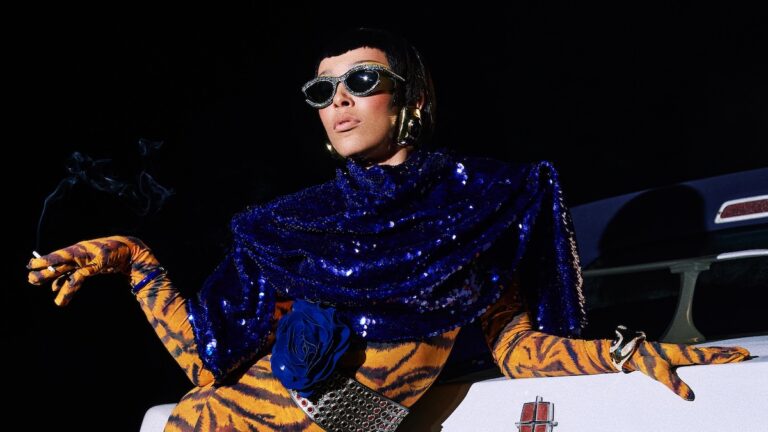If all the things means nothing to Doja Cat, what truly issues? Followers, stans, and informal listeners are actually simply as acquainted with the pop/rap star’s chaotic provocations as they’re along with her music. In Could 2023, she dismissed her breakthrough albums, unprovoked: “Planet Her and Hot Pink have been cash-grabs and y’all fell for it,” she wrote. “Now I can go disappear someplace and contact grass with my family members on an island whereas y’all weep for mediocre pop.” Months later, she disregarded her hard-edged 2023 hip-hop album Scarlet with equal irreverence: “To not diminish it, nevertheless it was a little bit of like, I simply must get this out — it was a large fart for me,” Doja told the New York Occasions earlier this month.
Doja Cat’s expertise has by no means been a query, however relatively how she chooses to have interaction with it. She has traditionally been deeply unserious in her assessments of her personal work — however with Vie, it’s clear that she’s looking for to know herself a bit extra broadly this time round. “Jealous Kind,” the album’s New Jack Swing-inflected lead single, not directly illustrates the battle of Doja as an keen artist who feels each overexposed and misunderstood: “Boy, let me know if that is careless, I/ Might be torn between two roads that I simply can’t determine/ Which one is main me to hell or paradise?”
Duality has all the time made Doja Cat a extra compelling artist, and Vie proves she thrives when she’s embodying each model of herself. As an alternative of committing to at least one lane, she treats the album as an experiment in mixing eras and kinds. She stands beneath the neon haze of the ’80s, fusing sleazy synths with the shiny pulse of R&B of the period and the grandiosity of glam rock. Vie additionally doesn’t overlook that rapping remains to be in her arsenal — even when used sparingly.
Associated Video
After spending the final album cycle hyper-focused on hip-hop, Doja returns right here to the comparably softer area of pop — however she doesn’t abandon the grit she picked up alongside the way in which. She lastly appears much less involved with selecting between her artistic instincts and extra comfy letting them co-exist, treating her full vary of abilities as equally legitimate instruments relatively than relating to one or one other like an affliction she must shake off.
On the opening monitor, “Playing cards,” saxophone bleeds by means of the left speaker earlier than night out and increasing to a soundscape that may be match for electro-funk band Zapp & Roger. Doja Cat slinks and prowls as she vacillates between singing and rapping, setting the thematic tone of the album: “Possibly in time, we’ll know/ Possibly I’ll fall in love, child/ Possibly we’ll win some hearts/ Gotta simply play your playing cards.”
It’s a generic mission on its floor — deconstructing and rebuilding love in all its iterations — nevertheless it’s direct in its simplicity, which has typically powered the very best pop of the previous and current. Which is smart, as Jack Antonoff, the purveyor of dominant, era-crossing pop, has his fingerprints throughout a Doja Cat album for the primary time, producing on 9 of the 15 complete tracks.
Along with “Jealous Kind,” Antonoff’s contributions sparkle most on “AAAHH MEN!” Sampling the theme from the Nineteen Eighties program Knight Rider, the music inserts itself into the lineage of hip-hop songs which have lifted the memorable synth, becoming a member of the ranks of Timbaland & Magoo’s “Clock Strikes” and Busta Rhymes’ “Turn It Up (Remix) / Fire It Up.” As averse as she appears to the pure “rapper” label, Doja can spit her ass off, and he or she demonstrates that the majority clearly right here: “Males must cry extra, boys must work/ However not when he beg his worker to flirt/ Ain’t no one finna pressure me to twerk/ If you’re completed together with your goon sesh, be a part of me in church.”

